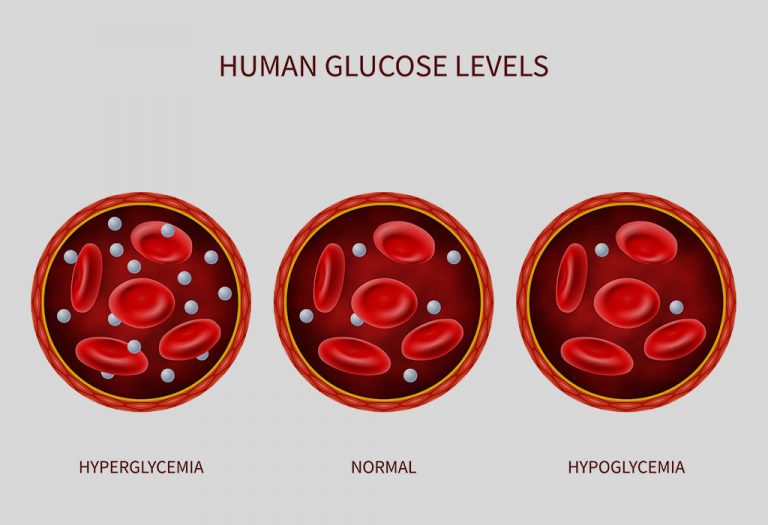Upper Stomach Pain During Pregnancy – Causes and When to Worry
Upper stomach pain during pregnancy can be uncomfortable and sometimes a little scary. With so many changes happening in your body, it’s normal to wonder what’s causing the discomfort. Is it something harmless, like indigestion, or could it be a sign of something more serious? Don’t worry! We’re here to help.
The good news is that many causes of pain in the upper stomach while pregnant are harmless, but it’s also important to know when to take it seriously. In this article, we’ll talk about the common causes of upper stomach pain, simple ways to find relief, and the red flags to watch for so you can focus on what matters most—keeping you and your baby healthy. Let’s get you the answers you need to feel calm, confident, and ready for what’s ahead!
Is it Common to Have Upper Stomach Pain in Pregnancy?
Yes, experiencing cramps in the upper abdomen during pregnancy is quite common and usually not a cause for concern. As your body adjusts to accommodate your growing baby, changes like hormonal shifts, stretching muscles, and pressure on your organs can lead to discomfort in the upper abdomen. However, while mild pain is usually normal, it’s essential to pay attention to the severity and accompanying symptoms (1).
Causes of Upper Stomach Pain During Pregnancy
Cramping in the upper abdomen during pregnancy can arise from various causes, some of which are common and manageable, while others may require medical attention. Here are a few common causes to help you understand what might be happening.
1. Gas and Bloating
Pregnancy hormones slow down digestion, causing gas and bloating. This can lead to a feeling of fullness or sharp pain in the upper stomach.
2. Heartburn or Acid Reflux
The growing uterus pushes against the stomach, and hormonal changes relax the valve between the stomach and the oesophagus. This can result in causing a burning sensation or pain in the upper abdomen (2).
3. Constipation
Hormonal changes and the pressure of the uterus on the intestines can lead to constipation. This can cause cramping or pain in the upper and lower stomach.
4. Gallstones
Hormonal changes and slower digestion during pregnancy can raise the risk of gallstones. These stones can cause pain in the upper right side of the stomach, especially after eating fatty foods (3).
5. Intrahepatic Cholestasis of Pregnancy
Intrahepatic Cholestasis of Pregnancy (ICP) is a rare but serious liver condition that can cause pain in upper abdomen during pregnancy second trimester along with symptoms like itching, dark urine, or pale stools. It causes a reduction in the flow of bile from the liver, causing a buildup of bile acids in the bloodstream. ICP can increase the risk of complications for both the mother and baby, such as preterm birth or fetal distress (4).
6. Pancreatitis
Pancreatitis is the pancreas inflammation that often causes pain during the 3rd trimester of pregnancy. It is usually caused by gallstones or high cholesterol levels. Common symptoms include dull upper abdominal pain radiating to the back, nausea and vomiting (5).
7. HELLP Syndrome
HELLP syndrome is a rare but serious pregnancy complication that stands for Hemolysis, Elevated Liver enzymes, and Low Platelet count. It usually happens in the later stages of pregnancy and can cause symptoms like stomach pain, nausea, headaches, and swelling (6).
8. Placental Abruption
Placental abruption occurs when the placenta separates prematurely from the uterine wall. It causes sharp abdominal pain with or without vaginal bleeding and may lead to preterm delivery or stillbirth (7).
9. Ectopic Pregnancy
An ectopic pregnancy occurs when a fertilised egg implants outside the uterus, typically in the fallopian tubes. Symptoms include abdominal pain, vaginal bleeding, and, in rare cases, upper abdominal discomfort (8).
How to Prevent Upper Abdominal Pain While Pregnant?
While it’s not always possible to avoid it completely, there are several steps you can take to minimise the risk of this pain and stay as comfortable as possible.
1. Eat Smaller, Frequent Meals
Opt for smaller, more frequent meals instead of having three large meals throughout the day. This helps prevent bloating, indigestion, and acid reflux (2) (9).
2. Stay Hydrated
Drinking at least 8-10 glasses of water daily keeps your digestion smooth and prevents constipation.
3. Avoid Trigger Foods
Spicy, fatty, and acidic foods can irritate your stomach and cause heartburn or indigestion. Pay attention to what triggers your discomfort and try to limit those foods (9).
4. Practice Good Posture
Sitting or standing upright can reduce pressure on your stomach and improve digestion. Slouching may worsen acid reflux and abdominal discomfort.
5. Get Moving
Physical activity, like walking or prenatal yoga, can improve digestion and reduce bloating. Gentle exercise also strengthens your abdominal muscles, offering more support as your baby grows (10).
6. Sleep on Your Left Side
Sleeping on your left side improves circulation and digestion, which can prevent pain caused by acid reflux or pressure on your stomach (11). Using a pregnancy pillow for added support can make sleeping more comfortable.
Home Remedies for Upper Abdominal Pain While Pregnant
High abdominal pain during pregnancy can be uncomfortable, but there are simple and safe home remedies that can help provide relief. Here’s how you can feel better at home:
- Gentle massage: Lightly massaging the upper abdomen with a gentle, circular motion can help reduce tension and improve circulation.
- Warm compress: Applying a warm compress (a heating pad or warm towel) to the upper abdomen may provide relief by relaxing the muscles and soothing discomfort (10).
- Herbal teas: Peppermint, ginger, and chamomile teas can have soothing effects on digestion and help alleviate bloating or indigestion that may cause abdominal pain (12).
- Drink Lemon Water: A glass of warm water with lemon can improve digestion and alleviate mild stomach pain.
- Avoid Lying Down After Eating: Wait an hour after meals before lying down to prevent acid reflux and heartburn (13).
When to Consult the Doctor?
While mild upper abdominal pain is often normal, it is important to be aware of when the discomfort may signal a more serious issue. Here are some situations where you should contact your doctor (14):
- Severe or persistent pain
- Pain accompanied by high fever
- Signs of preeclampsia
- Bleeding or spotting
- Persistent nausea and vomiting
- If the pain spreads to your back, shoulders, or chest
- If you notice reduced baby movements
- Difficulty breathing or dizziness
FAQs
1. Is it safe to use over-the-counter antacids for stomach pain in the first trimester?
Over-the-counter antacids can be used for mild stomach pain or heartburn during the first pregnancy trimester, but choosing the right type is important. It’s always best to consult your doctor before taking any medication (15).
2. Can a baby’s position cause stomach pain during pregnancy?
Yes, the position of the baby can cause stomach pain, especially as the pregnancy progresses. As the baby grows and shifts, their position can put pressure on the stomach, diaphragm, or other organs. This is more common in the later stages of pregnancy when the baby takes up more space.
Pain in the upper stomach while pregnant can be uncomfortable, but it’s usually a normal part of the changes your body is going through. However, always trust your instincts; if you feel something isn’t right or the pain feels different from usual, don’t hesitate to consult your doctor. Taking care of yourself is just as important as caring for your little one!
References/Resources:
1. Cleveland Clinic – Upper Abdominal Pain
2. Nemours KidsHealth – How Can I Deal With Heartburn During Pregnancy?
4. March of Dimes – Intrahepatic cholestasis of pregnancy
5. PubMed Central – Pancreatitis in Pregnancy-Comprehensive Review
6. March of Dimes – HELLP syndrome
7. March of Dimes – Placental abruption
8. NHS – Stomach pain in pregnancy
9. The Johns Hopkins Medicine – Pregnancy and Heartburn
10. Cleveland Clinic – Pregnancy Discomforts
11. Sleep Foundation – Side Sleeping: Which Side Is Best and How To Do It
12. The Johns Hopkins Medicine – Ginger Benefits
13. Cleveland Clinic – Heartburn During Pregnancy
14. Tommy’s – Stomach (abdominal) pain or cramps in pregnancy
15. NHS – Indigestion and heartburn in pregnancy
Also Read:
Hip Pain in Pregnancy
Knee Pain when Pregnant
Joint Pain during Pregnancy
Vaginal Pain While Pregnant
Round Ligament Pain During Pregnancy
Was This Article Helpful?
Parenting is a huge responsibility, for you as a caregiver, but also for us as a parenting content platform. We understand that and take our responsibility of creating credible content seriously. FirstCry Parenting articles are written and published only after extensive research using factually sound references to deliver quality content that is accurate, validated by experts, and completely reliable. To understand how we go about creating content that is credible, read our editorial policy here.


































